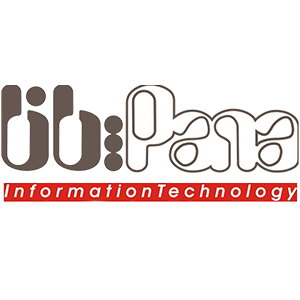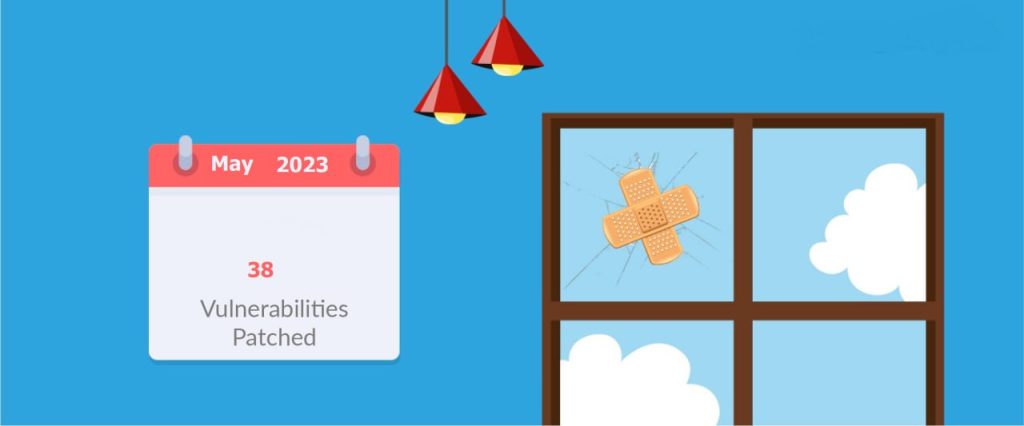مایکروسافت وصله های امنیتی سه شنبه های ماه May را منتشر کرد و 3 آسیب پذیری Zero-day و جمعا 38 حفره امنیتی را رفع کرده است. 6 مورد از این آسیب پذیری ها در دسته آسیب پذیری های حیاتی قرار گرفته و امکان اجرای کد از راه دور را به مهاجم میدهد.
آسیب پذیری ها در هر دسته :
- 8 Elevation of Privilege Vulnerabilities
- 4 Security Feature Bypass Vulnerabilities
- 12 Remote Code Execution Vulnerabilities
- 8 Information Disclosure Vulnerabilities
- 5 Denial of Service Vulnerabilities
- 1 Spoofing Vulnerability
وصله منتشر شده در این ماه از کوچکترین وصله های منتشر شده مایکروسافت از نظر تعداد آسیب پذیری های رفع شده در آن محسوب می شود.
آسیب پذیری های Zero-day
دو مورد از سه آسیب پذیری رفع شده در این ماه، در حملات مورد بهره برداری مهاجمان قرار گرفته و یک مورد نیز به صورت عمومی افشا شده است.
مشخصات دو آسیب پذیری zero-day که مورد بهره برداری قرار گرفته اند:
CVE-2023-29336 – Win32k Elevation of Privilege Vulnerability
این آسیب پذیری دسترسی به مجوزها که در درایور Win32k Kernel وجود داشته، به مهاجم امکان دسترسی به مجوز های سطح SYSTEM را میدهد.
علی رغم اینکه مایکروسافت اعلام کرده این حفره امنیتی مورد بهره برداری قرار گرفته است اما جزییاتی از این حملات منتشر نکرده است.
CVE-2023-24932 – Secure Boot Security Feature Bypass Vulnerability
این حفره امنیتی یک حفره Secure Boot bypass بوده که توسط مهاجمان برای نصب Black Lotus UEFI bootkit استفاده می شود. با بهره برداری از این آسیب پذیری مهاجمی که دسترسی فیزیکی داشته یا مجوزهای ادمین را در اختیار داشته باشد، می تواند روی دستگاه نرم افزار مخرب موردنظر خود را نصب نماید.
UEFI Bootkits بدافزارهایی هستند که در فریم ورک سیستم قرار می گیرند و از دید نرم افزارهای امنیتی مخفی می مانند چرا که بدافزار در مراحل اولیه Boot بارگذاری می شود.
از اکتبر 2022 یک مهاجم سایبری BlackLotus Bootkit را در یک فروم هکری به فروش می رسانده و قابلیت های جدیدی به آن اضافه شده است. برای مثال در ماه مارچ ESET گزارش داد که این بدافزار توسعه یافته و حتی می تواند سیستم عامل های ویندوز 11 که تمامی پچ های امنیتی روی آن نصب شده را نیز دور بزند.
مایکروسافت آسیب پذیری مورد استفاده Bootkit را برطرف کرد اما به طور پیش فرض آن را فعال نکرده است. در حال حاضر اقدامات بیشتری برای تعدیل خطر این آسیب پذیری وجود دارد که مایکروسافت در این لینک به آن اشاره کرده است.
مشخصات آسیب پذیری zero-day که به صورت عمومی افشا شده به صورت زیر می باشد:
CVE-2023-29325 – Windows OLE Remote Code Execution Vulnerability
این حفره امنیتی Windows OLE موجود در اوت لوک می تواند توسط مهاجمان از طریق ارسال ایمیلهای ساخته شده خاصی به قربانی مورد بهره برداری قرار بگیرند. در نهایت با باز شدن این ایمیل توسط قربانی در محیط اوت لوک آسیب پذیر یا حتی پیش نمایش آن، مهاجم می تواند از آسیب پذیری مذکور بهره برداری نموده و کد دلخواه خود را از راه دور اجرا نماید.
بهره برداری موفق از این آسیب پذیری منوط به شرایط و عملیات خاصی است.
آپدیت های این ماه سایر شرکتها
- Apple released a security update for Beats headphones.
- Cisco released security updates for Cisco iOS and disclosed an RCE bug for the unsupported Cisco SPA112 2-Port Phone Adapters.
- CISA warned of critical bugs in Illumina DNA sequencing systems
- Google released the Android May 2023 updates to fix a bug used to install Spyware on phones.
- SAP has released its May 2023 Patch Day updates.
در جدول زیر لیست کامل این به روز رسانی ها ذکر شده است:
| Tag | CVE ID | CVE Title | Severity |
|---|---|---|---|
| Microsoft Bluetooth Driver | CVE-2023-24947 | Windows Bluetooth Driver Remote Code Execution Vulnerability | Important |
| Microsoft Bluetooth Driver | CVE-2023-24948 | Windows Bluetooth Driver Elevation of Privilege Vulnerability | Important |
| Microsoft Bluetooth Driver | CVE-2023-24944 | Windows Bluetooth Driver Information Disclosure Vulnerability | Important |
| Microsoft Edge (Chromium-based) | CVE-2023-29354 | Microsoft Edge (Chromium-based) Security Feature Bypass Vulnerability | Moderate |
| Microsoft Edge (Chromium-based) | CVE-2023-2468 | Chromium: CVE-2023-2468 Inappropriate implementation in PictureInPicture | Unknown |
| Microsoft Edge (Chromium-based) | CVE-2023-2459 | Chromium: CVE-2023-2459 Inappropriate implementation in Prompts | Unknown |
| Microsoft Edge (Chromium-based) | CVE-2023-29350 | Microsoft Edge (Chromium-based) Elevation of Privilege Vulnerability | Important |
| Microsoft Edge (Chromium-based) | CVE-2023-2467 | Chromium: CVE-2023-2467 Inappropriate implementation in Prompts | Unknown |
| Microsoft Edge (Chromium-based) | CVE-2023-2463 | Chromium: CVE-2023-2463 Inappropriate implementation in Full Screen Mode | Unknown |
| Microsoft Edge (Chromium-based) | CVE-2023-2462 | Chromium: CVE-2023-2462 Inappropriate implementation in Prompts | Unknown |
| Microsoft Edge (Chromium-based) | CVE-2023-2460 | Chromium: CVE-2023-2460 Insufficient validation of untrusted input in Extensions | Unknown |
| Microsoft Edge (Chromium-based) | CVE-2023-2465 | Chromium: CVE-2023-2465 Inappropriate implementation in CORS | Unknown |
| Microsoft Edge (Chromium-based) | CVE-2023-2466 | Chromium: CVE-2023-2466 Inappropriate implementation in Prompts | Unknown |
| Microsoft Edge (Chromium-based) | CVE-2023-2464 | Chromium: CVE-2023-2464 Inappropriate implementation in PictureInPicture | Unknown |
| Microsoft Graphics Component | CVE-2023-24899 | Windows Graphics Component Elevation of Privilege Vulnerability | Important |
| Microsoft Office | CVE-2023-29344 | Microsoft Office Remote Code Execution Vulnerability | Important |
| Microsoft Office Access | CVE-2023-29333 | Microsoft Access Denial of Service Vulnerability | Important |
| Microsoft Office Excel | CVE-2023-24953 | Microsoft Excel Remote Code Execution Vulnerability | Important |
| Microsoft Office SharePoint | CVE-2023-24955 | Microsoft SharePoint Server Remote Code Execution Vulnerability | Critical |
| Microsoft Office SharePoint | CVE-2023-24954 | Microsoft SharePoint Server Information Disclosure Vulnerability | Important |
| Microsoft Office SharePoint | CVE-2023-24950 | Microsoft SharePoint Server Spoofing Vulnerability | Important |
| Microsoft Office Word | CVE-2023-29335 | Microsoft Word Security Feature Bypass Vulnerability | Important |
| Microsoft Teams | CVE-2023-24881 | Microsoft Teams Information Disclosure Vulnerability | Important |
| Microsoft Windows Codecs Library | CVE-2023-29340 | AV1 Video Extension Remote Code Execution Vulnerability | Important |
| Microsoft Windows Codecs Library | CVE-2023-29341 | AV1 Video Extension Remote Code Execution Vulnerability | Important |
| Remote Desktop Client | CVE-2023-24905 | Remote Desktop Client Remote Code Execution Vulnerability | Important |
| SysInternals | CVE-2023-29343 | SysInternals Sysmon for Windows Elevation of Privilege Vulnerability | Important |
| Visual Studio Code | CVE-2023-29338 | Visual Studio Code Information Disclosure Vulnerability | Important |
| Windows Backup Engine | CVE-2023-24946 | Windows Backup Service Elevation of Privilege Vulnerability | Important |
| Windows Installer | CVE-2023-24904 | Windows Installer Elevation of Privilege Vulnerability | Important |
| Windows iSCSI Target Service | CVE-2023-24945 | Windows iSCSI Target Service Information Disclosure Vulnerability | Important |
| Windows Kernel | CVE-2023-24949 | Windows Kernel Elevation of Privilege Vulnerability | Important |
| Windows LDAP – Lightweight Directory Access Protocol | CVE-2023-28283 | Windows Lightweight Directory Access Protocol (LDAP) Remote Code Execution Vulnerability | Critical |
| Windows MSHTML Platform | CVE-2023-29324 | Windows MSHTML Platform Security Feature Bypass Vulnerability | Important |
| Windows Network File System | CVE-2023-24941 | Windows Network File System Remote Code Execution Vulnerability | Critical |
| Windows NFS Portmapper | CVE-2023-24901 | Windows NFS Portmapper Information Disclosure Vulnerability | Important |
| Windows NFS Portmapper | CVE-2023-24939 | Server for NFS Denial of Service Vulnerability | Important |
| Windows NTLM | CVE-2023-24900 | Windows NTLM Security Support Provider Information Disclosure Vulnerability | Important |
| Windows OLE | CVE-2023-29325 | Windows OLE Remote Code Execution Vulnerability | Critical |
| Windows PGM | CVE-2023-24940 | Windows Pragmatic General Multicast (PGM) Denial of Service Vulnerability | Important |
| Windows PGM | CVE-2023-24943 | Windows Pragmatic General Multicast (PGM) Remote Code Execution Vulnerability | Critical |
| Windows RDP Client | CVE-2023-28290 | Microsoft Remote Desktop app for Windows Information Disclosure Vulnerability | Important |
| Windows Remote Procedure Call Runtime | CVE-2023-24942 | Remote Procedure Call Runtime Denial of Service Vulnerability | Important |
| Windows Secure Boot | CVE-2023-28251 | Windows Driver Revocation List Security Feature Bypass Vulnerability | Important |
| Windows Secure Boot | CVE-2023-24932 | Secure Boot Security Feature Bypass Vulnerability | Important |
| Windows Secure Socket Tunneling Protocol (SSTP) | CVE-2023-24903 | Windows Secure Socket Tunneling Protocol (SSTP) Remote Code Execution Vulnerability | Critical |
| Windows SMB | CVE-2023-24898 | Windows SMB Denial of Service Vulnerability | Important |
| Windows Win32K | CVE-2023-29336 | Win32k Elevation of Privilege Vulnerability | Important |
| Windows Win32K | CVE-2023-24902 | Win32k Elevation of Privilege Vulnerability | Important |
منبع :

